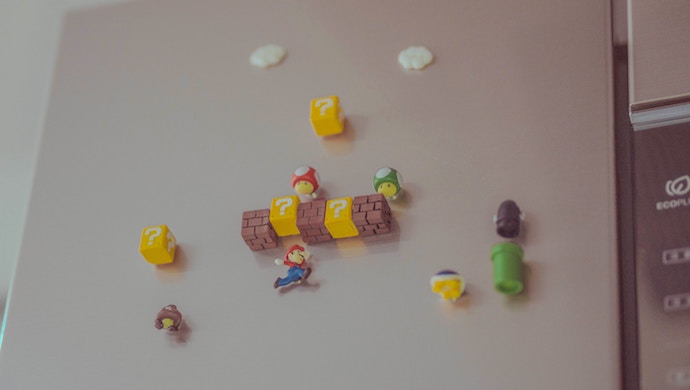With decentralised gaming, gamers will not just be able to earn a living but also control their in-game experience without unnecessary external influence from gaming companies

The growth in the gaming industry can simply not be ignored. With over 2.5 billion gamers globally as at 2016, there’s no doubt there has already being an exponential increase. However, the multibillion dollar industry is what it is currently because of the money and time devoted to it by gamers around the world.
These gamers actively purchase games likewise also purchasing necessary in-game items. Their contribution to the industry’s revenue cannot be overemphasised. According to US statistics, in 2017, software sales accounted for 80% of the total video game industry’s $36 billion revenue.
What Makes Up This Revenue?
Global in-game spending is expected to reach US$32 billion in 2020, up from US$22 billion in 2015. This is great for the industry, but one has to ask what the gamers — the actual driving force of the gaming ecosystem — are getting as compensation. Most in-game spending does not yield rewards, for gamers, in the real world. The developers of the games make the profit from in-game spending, but that is where it stops.
Also read: Can a game about virtual kittens help blockchain go mainstream?
Consumers have been sold the idea that the “gaming experience” is the reward they need — which is one of the major problems with the current ecosystem. This is a common trend among mainstream, centralised platforms in the world. The consumers rarely benefit as much as the providers do. The providers, in this instance, being game developers. This is also one of the reasons why change will not come from centralisation. It will come through Blockchain.
Blockchain: A Feasible Solution
Blockchain technology is also known as the “technology for the people” because of its foundational incentive to reward everyone within the ecosystem. It’s all about leveling the playing field and ensuring that gamers are rewarded in the same way that the game developers are.
For many gamers, gaming is more than just a hobby or a pastime — it’s a lifestyle. A lifestyle they could make a living off of if the field was fair. Gamers need companies that are dedicated to serving them and not just their own corporate interests. Gaming can become a lifestyle, should the right ecosystem be set up.
Gaming up until now involved gamers playing games that have already being pre-designed by companies. Gamers had no control over what happens with the in-game experience as the game developers could influence or make changes without informing or getting consent from gamers prior. An experience Vitalik Buterin, founder of Ethereum shared when he had some features on his game character in World of Warcraft removed without his notice, which left him devastated. An event that partly pushed him to begin looking to decentralisation.
With decentralised gaming, gamers will not just be able to earn a living but also control their in-game experience without unnecessary external influence from gaming companies.
One of the main blockchain-based companies that are seeking to change the dynamics in the gaming ecosystem is Plair Building on the Vechain blockchain for effectiveness and sustainability, Plair is focused on creating gaming ecosystems that are sustainable and disruptive. It is sustainable in giving users a way to make a livelihood from their gaming, and disruptive in the sense that this model will challenge all other gaming models that currently exist.
Also read: Blockchain tech is swiftly gaining influence, innovating the world beyond tech
The idea is to ensure that gamers can truly enjoy what they do, while earning a living from it. Not only is this giving what is due to them, but it is also giving them a reward for their immense contribution to the gaming industry and, ultimately, the blockchain ecosystem, as well. The key here is that the blockchain platform supports an individual’s choice to invest his or her time, resources, and life in gaming.
The industry as a value-chain
Other examples of startups that have facilitated a decentralised gaming ecosystem are EtherTanks, CryptoPets, and Ethermon.
Mainly focusing on the e-sports industry value chain, these companies aim to become the “go-to” place for games all over the world. A place where they can encounter an online social experience — an amalgamation of social interaction, spectating, and creating gaming content of their own. This is how gamers can be empowered — not just with rewards but the freedom to truly explore the software they have come to love.
Through blockchain technology, their economic model and distinct algorithms, such startups will be able to identify and measure the value being created by members on the platform. The blockchain ledger makes it possible for this to be observed — as it is transparent and immutable. Those who are contributing value to the ecosystem will be rewarded for their time, participation, viewership, growth, intellectual property and various activities on the platform with credits generated by through tokenised ecosystems. These credits can hold monetary value either within the system or even in the real world through exchanges.
It’s about time gamers made substantial amount for themselves to sustain their daily lives whilst also doing what the love to do — this can also be possible through creative online/offline events, tournaments, tours, shows and products, all tied within their respective token ecosystems.
The coming years certainly have lots in store for gamers in terms of significant compensations for gaming participation and creative autonomy. The world is becoming more and more decentralised, and the world of gaming is not about to get left out.
—-
e27 publishes relevant guest contributions from the community. Share your honest opinions and expert knowledge by submitting your content here.
Photo by zengxiao lin on Unsplash
The post Here’s how blockchain can disrupt the billion-dollar gaming industry appeared first on e27.